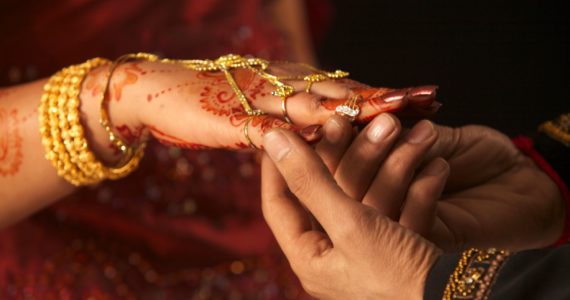Source: http://www.soundvision.com/article/when-the-trust-disappears-from-our-relations
In the eyes of Islam, Trust (Amanah) has a very broad sense. The word contains an ocean of meaning, but underneath it all is the sense of responsibility and accountability for one’s actions before God. Trust means that you should protect the rights of the gatherings which you attend. You should not disclose their information and their secrets to others.
A number of relationships are severed, rifts are created in friendships and interests are endangered when the information about or the secrets of the gatherings are disclosed by someone by correctly or incorrectly quoting the source, thus jeopardizing all the plans.
Allah’s Messenger, peace be upon him, has said: “When a man says something to someone and then turns to you, then it is a trust.”
The confidential talk of the meetings should be guarded, provided it conforms to the moral laws and the principles of religion, otherwise its sanctity vanishes. If a Muslim is present in such a meeting where criminals, are conspiring among themselves, so that they may inflict some loss on others, then it is his responsibility that be should try to prevent this evil to the best of his ability.
Allah’s Messenger, peace be upon him, has said : “The secrets of the gatherings are a trust, but three kinds of gatherings are exceptions: one in which haram (illegal) blood is being shed, one in which haram (illegal) sex is being indulged into, or in which property is being illegally usurped (Abu Daud).
Do Not Betray Your Wife’s or Husband’s Trust
The conjugal relations are sacred in the eyes of Islam. The domestic relationship between a husband and wife and their mutual affairs should be fully protected. The closest man should also not be informed about them.
But foolish people relate their private matters and domestic affairs here and there to outsiders. This is a very bad habit and Allah has declared it haram (forbidden).
Asma bint Yazid reports that she was with the Prophet, peace be upon him, and a husband and a wife were sitting there. The Prophet said: “Is there a man who narrates the acts performed with the wife? And is there a wife who relates her relation with her husband to others.” People did not say anything from fear. I said: “O Messenger of Allah, By God, husbands also do this and wives also do likewise.” He said: “Do not say like this. Its example is like a devil-man meeting a devil-woman, and he covers her and performs the sexual act and people are watching.” (Ahmed)
The Prophet, peace be upon him, said: “On the Day of Judgment before Allah the greatest act of misappropriation will be that a man may love his wife and the wife may also be inclined towards her husband and then he may disclose his wife’s secrets to others” (Muslim).
Guard People’s Property & Possessions Given to You
The deposits which are given to us in trust are for being protected for a fixed period, and then to be returned on demand. We are answerable for these trusts.
While migrating to Medina, the Prophet left behind his cousin so that he may return to the polytheists the deposits kept with him in trust, although these polytheists were the members of the same community which was driving him out of his native place. He was being compelled to leave his home due to his belief, but how can a decent man behave indecently even with indecent and infamous people?
Maimoon bin Mehran says that three kinds of treatment should always meted out to good and bad people alike: keeping trust, fulfilling promise and kindness. To consider trust as personal property is a wicked act, theft.
Abdullah Ibn Masood says that fighting in the cause of Allah vanishes all the sins except the misappropriation in trust. He says that on the Day of Judgment a person will be brought who had fought in the cause of Allah, and he would say: “O Our Lord! How is it possible when the world has ended.” Then it would be said: “Take him to Hell.” And in his presence the amounts of trust will be presented in the same form in which they were handed over to him in the world. He would see them and recognize them. He would go after them and seize them and carry them on his shoulders, till he would be under the impression that he has come out, when the trusts would slip from his shoulders. He would again run after them. This act would continue with him for ever.
Then Abdullah ibn Masood said that Salat (prayer) is a trust, Wudu (ablutions) is a trust, to weigh a thing is a trust, to measure a thing is a trust, and he listed many things and said the greatest trust is that wealth or articles which are deposited or handed over.
The narrator of the Hadith says that he went to Bara bin Azib and asked him what he thought about what Ibn Masood said. Bara bin Azib replied : “He spoke the truth. Did you not hear this command of Allah:
“Allah commands you to render back your trusts to those to whom they are due; and when you judge between man and man that you judge with justice.” (An-Nissa: 58)
Keeping Trust is Naturally Ingrained in a Believer’s Heart
Keeping trust protects the rights of Allah and those of His slaves. It keeps away people from lowliness and meanness. It reaches the desired heights only when this quality is absorbed by people in their natures and consciousness, when it reaches the depths of their hearts and when it is guarded against the influences of close and distant relationships.
This is the meaning of the Hadith narrated by Nuzaifa bin Yaman: “Keeping trust has been naturally ingrained in the depths of men’s hearts. Then Quran came and people learned it from Quran and Sunnah.” (Muslim)
The knowledge of Sharia cannot be indifferent to the righteous conduct, and keeping trust signifies the correct knowledge of Quran and Sun nah as well as a wakeful conscience. If the conscience dies, then the quality of keeping trust is taken away. At such a time the recitation of the Quranic verses and the study of Hadith cannot be profitable, but the claimants of Islam think about others and also about themselves that they are the bearers of this quality, but one may ask how can the heart that rejects the truth be expected to keep trust?
For this reason the famous companion, Huzaifa bin Al-Yaman, has stated that the heart that has no belief loses the quality of keeping trusts. Accordingly he reports: “Then we started talking about the loss of trust (among people), and the Prophet said : ‘When a man goes to one kind of sleep, the trust is squeezed from his heart till its effect remains equal to a point. Then he goes to another kind of sleep, then the trust shrinks from his heart in such a way as if it were merely a scar.’ Then the Prophet said : ‘Then people indulge in buying and selling, but no one can give a thing in trust, so much so that it is said that in a certain family there is a trustworthy man, and about him it is said how tolerant, well-behaved and wise he is, although there is not an iota of faith in his heart!”
This Hadith draws a horrible picture of the loss of trust worthiness from the hearts of dishonest people. It is like finding sparks of goodness in the nature of some mischievous people sometimes, although they have no influence on their lives. And sometimes the good acts overshadow their evil deeds, but it is clear that these acts cannot revive the dead heart. This conscience-less person appraises men on the basis of his desires and preferences. He does not distinguish between faith and infidelity in them.
Keeping trust is a very important quality. People with weak faith cannot bear it. Allah has given an example of how its burden bears down man’s whole existence. Therefore, it should not be considered an ordinary thing and no laxity should be shown in fulfilling its demands:
“We did indeed offer the Trust to the Heavens and the Earth and the mountains; but they refused to undertake it, being afraid thereof; but man undertook it; he was indeed unjust and foolish.” (Ahzab: 72)
– Excerpted from “Muslim’s Character” by Muhammad Al-Ghazali, p. 81-86








